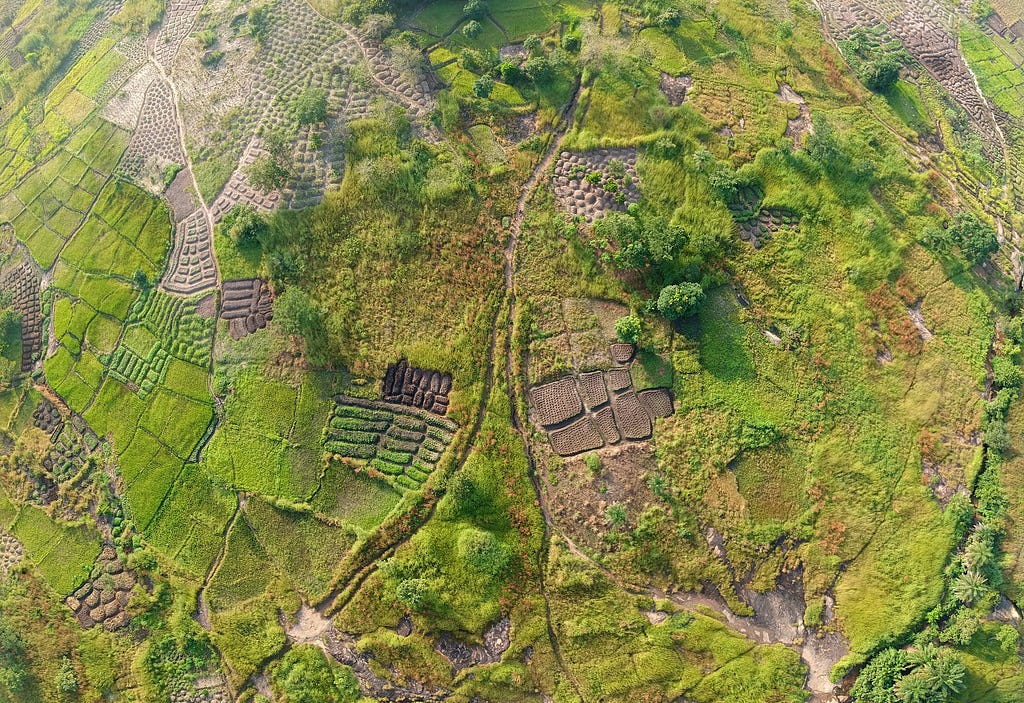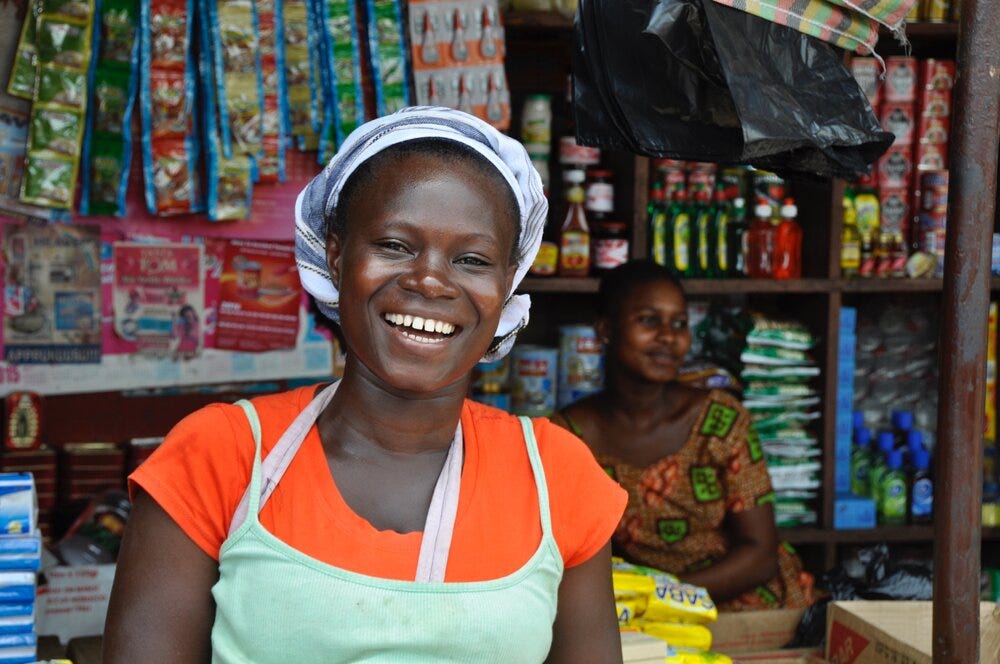During and Beyond COVID-19: Initiatives and Investments Could Bolster Rural Farmers and Create a Sustainable Future

By Dr. Ijeoma Nwagwu, a member of the Sustainability Leadership and Strategy faculty at Lagos Business School in Nigeria.
The COVID-19 crisis has triggered an unprecedented homegrown response in Africa with an outpouring of corporate philanthropy and community solidarity. For example, South Africa’s Solidarity Fund and Nigeria’s Private Sector Coalition Against COVID-19 (CACOVID) have received large gifts as well as a deluge of giving from private individuals and small businesses to cushion the socioeconomic impact of social distancing measures — quarantines, curfews, stay-at-home orders — on the poor.
The private sector has created impact that African governments could never have achieved alone. Both corporate and government action to curb the spread of COVID-19 are focused on urban centers and momentary humanitarian relief. It’s too early for a full accounting of aid efforts. But I see through my work with businesses at Lagos Business School that responses to the crisis concentrate on providing food aid and cash grants to mainly urban households.
The battle against the virus will be won or lost in the continent’s poorest communities, which are most vulnerable to COVID-19, and it’s a long-term struggle.
In deploying solutions and support, businesses should focus particularly on those most affected, such as poor rural farmers, and address core structural challenges that predate COVID-19 and worsen its impact now.

How Poor Communities Are Vulnerable to COVID-19
A torn social fabric in Africa increases COVID-19’s impact.
Most Africans live precariously at $1.90 a day. In Nigeria, for example, 90 million people — roughly half of the population — live in extreme poverty. Their living conditions further fuel COVID-19 transmission: 60% of the continent’s population — 587 million Africans — live in overcrowded urban slums, such as Alexandra, Makoko, and Kibera. Here the social distancing needed to fight COVID-19 is impossible to enact, and informal sector workers balk against lockdowns that bar them from eking out a living.
Rural poverty is even more dire. The poor in the countryside mostly live without access to critical health, education, energy and telecommunications infrastructure. Natural disasters and broad economic trends also limit the productivity, income and food security of the poor, most of whom are farmers. Perpetually neglected, the rural areas have found their only support in dealing with COVID-19 coming from community-based self-help associations.

Rethink CSR in a Pandemic
I have seen through my work with businesses at the Lagos Business School Sustainability Centre that businesses’ corporate social responsibility (CSR) initiatives tend to be small-scale, individual efforts. These activities do not address challenges in a holistic way or bring the needed breadth of resources and expertise. Only a handful of businesses, mainly multinationals, will have sustainability frameworks that attempt to take a systemic and long-term view of the social problems they are trying to address. The harm caused by COVID-19 is enabled by pre-existing challenges such as food insecurity, poor housing, lack of access to quality health care, and unemployment.
Below I explain what this needed approach might look like in the area of food security.
Longstanding Food Insecurity is Worsened by COVID-19
COVID-19 has exacerbated existing food insecurity, which already affected one fifth of the population in sub-Saharan Africa. African agriculture centers on smallholder farms, which have long experienced underinvestment and poor productivity. Farmers face challenges accessing many fundamental resources, including quality inputs (seeds and fertilizer), education through agricultural extension services, financing, storage, logistics and transport.
COVID-19-related lockdowns have interrupted these already fragile food production and distribution systems. Farmers are unable to sell their crops, deepening their poverty and leading to greater dependence on external food imports. But these imports are no longer forthcoming due to COVID-19-related food export restrictions in supplier countries such as Vietnam and India. The resulting scarcity has made staple foods too costly for many households, leading to increased undernutrition.
Businesses Can Strengthen the Food Value Chain
Momentary humanitarian assistance has value in light of immediate food security challenges. But CSR programming and investment should focus on strengthening the food value chain from its roots in mainly rural farms to the table.
Businesses, particularly those in the financial sector as well as the food and beverage industry, can through both CSR initiatives and investments:
- Expand financing opportunities for the farmers.
- Create access to appropriate training in, and tools for, agricultural best practices.
- Invest in logistics, transportation and storage systems.
- Enable greater access to retail markets at fair prices.
These efforts should scale the hopeful experiments of social enterprises such as the One Acre Fund in East Africa and Babban Gona in West Africa. These social enterprises have business models grounded in rural economies that link the expertise and resources of businesses with government agencies, community groups, multinational food buyers, and international development partners. Farmers are able to boost their productivity by leveraging high-quality inputs (seeds, fertilizer etc.), agricultural training, and logistical support to get their goods to market. Boosted farm income supports household consumption and other activities.
This refocusing of attention and resources can enable Africans to make it out of the current food security crisis and build resilience toward a sustainable future. The coronavirus crisis teaches us that it is essential for companies to take a long-term view and systemic approach to addressing poverty, to forge new corporate alliances and inclusive business models for the common good, and to disrupt and transform failing systems of public service provision and value creation.
A version of this article was published by the Network for Business Sustainability, a growing network of more than 7,000 researchers and managers committed to advancing sustainable business.
B the Change gathers and shares the voices from within the movement of people using business as a force for good and the community of Certified B Corporations. The opinions expressed do not necessarily reflect those of the nonprofit B Lab.

How Businesses Can Encourage a More Resilient Food System in Africa was originally published in B The Change on Medium, where people are continuing the conversation by highlighting and responding to this story.